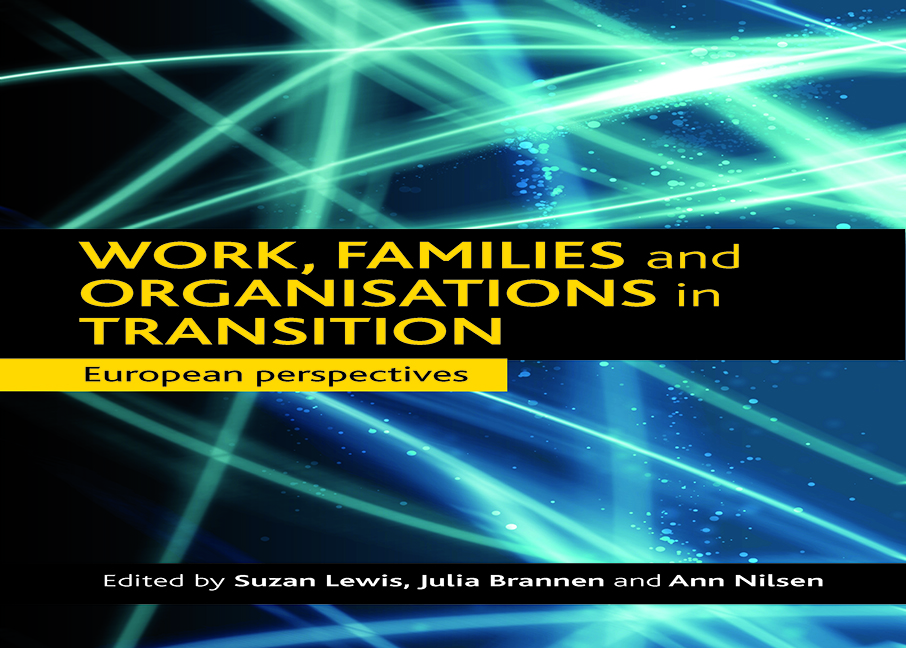Book contents
- Frontmatter
- Dedication
- Contents
- Acknowledgements
- Notes on contributors
- one Work, family and organisations in transition: setting the context
- two Research design and methods: doing comparative cross-national research
- Part One Public sector organisations
- Part Two Private sector organisations
- Part Three Comparisons
- Appendix
- References
- Index
eleven - Comparing flexible working arrangements across organisational contexts
Published online by Cambridge University Press: 16 July 2022
- Frontmatter
- Dedication
- Contents
- Acknowledgements
- Notes on contributors
- one Work, family and organisations in transition: setting the context
- two Research design and methods: doing comparative cross-national research
- Part One Public sector organisations
- Part Two Private sector organisations
- Part Three Comparisons
- Appendix
- References
- Index
Summary
This chapter moves beyond discussions of single case studies and within-country cross-sector comparisons to begin to consider the broader picture, focusing on parents’ need for flexible working arrangements in order to manage their everyday lives. One of the key features of the Transitions study was its focus on how change and transitions in organisations (but also families and societies) affected the lives of working parents with young children. Change is a major theme running through this chapter, in which we address two issues. The first is the complexity of organisational change and the particular challenges for cross-national comparison. This is illustrated with reference to some of the public sector case studies and different forms that change and ‘modernisation’ take. The second is the impact of organisational change and turbulence stemming from globalisations and the question of whether this renders local context more or less significant for parents. This is highlighted in a comparison of parents’ experiences of flexible working arrangements in some of the private sector organisations, as they change in response to global competition. The importance of gender as a permeating feature of organisational context (Acker, 1992) is also highlighted particularly in the latter discussion, although here it is the slow pace of change that is apparent.
While gender has not been the explicit focus of all the organisational case studies, the Transitions study design took account of the gender-segregated pattern of employment that is to be found across countries, with more women employed in the public than the private sectors. The division of labour in families is also asymmetrical across contexts, albeit with marked differences. Thus, gender can be thought of as a structuring element that intersects with other variations and makes the situation for working mothers and fathers different, even when other aspects of context are similar (Harding, 1987).
The research team endeavoured to create a comparative framework for the project that could be applied across national contexts. However, as Chapter Two demonstrates, qualitative studies represent a challenge in cross-national comparisons, not least because of cultural and linguistic differences. In the following analysis the term ‘flexible working’ is one such concept that does not have the same meaning in different countries and contexts.
- Type
- Chapter
- Information
- Work, Families and Organisations in TransitionEuropean Perspectives, pp. 167 - 178Publisher: Bristol University PressPrint publication year: 2009



